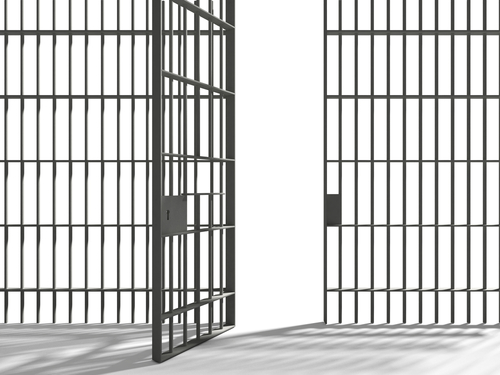Over 40 California prosecutors petition to repeal new rules increasing good-conduct credits for inmates

Image from Shutterstock.
About two-thirds of California's top county prosecutors are challenging new rules that could make tens of thousands of people incarcerated in the state eligible for early release.
In a May 13 petition to the California Department of Corrections and Rehabilitation, Sacramento District Attorney Anne Marie Schubert wrote that she and 40 other prosecutors out of the state’s 58 district attorneys object to temporary emergency regulations that expand good-conduct credits because they could “have the effect of significantly shortening the length of sentence for 76,000 violent and serious offenders.”
The Sacramento Bee, the San Francisco Chronicle, CBS Sacramento and the Associated Press have coverage.
Schubert also wrote that the regulations, which went into effect May 1 without public hearings, were adopted on an emergency basis despite being based on California Gov. Gavin Newsom’s budget summary from May 2020.
“Nowhere in the supporting documents is there an explanation of how last year’s budget has become an operational need for adoption of the regulations on an emergency basis,” Schubert said. “As such, the public was denied an adequate opportunity for public input and comment on these far-reaching regulations.”
Dana Simas, a spokeswoman for the California Department of Corrections and Rehabilitation, told the Sacramento Bee that the department is reviewing the district attorneys’ petition, but that Proposition 57 provided it the authority to submit regulations to provide additional opportunities for inmates to receive credit for good conduct.
Simas said “the emergency regulations are a result of that voter mandate,” which was approved in 2016. She added that they are still subject to public comment and approval before becoming final.
According to the proposed regulations, people who were convicted of violent crimes previously earned one day of good-conduct credit for every four days served. They will now be able to earn one day of credit for every two days served.
People who were convicted of a second or third serious but nonviolent offense previously earned one day of good-conduct credit for every three days served but will now earn one day of credit for each day served.
The Associated Press reports that the changes will affect more than 63,000 inmates convicted of violent crimes who could now serve only two-thirds of their sentences.
Vern Pierson, El Dorado County’s district attorney and president of the California District Attorneys Association, told the Associated Press that the California Department of Corrections and Rehabilitation “should have complied with the various notice requirements and public comment for something of this magnitude.”
Los Angeles and San Francisco’s district attorneys did not sign on to the petition.



